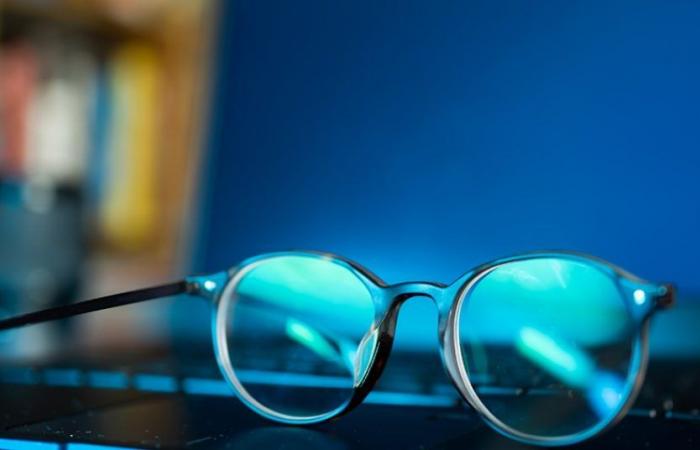In recent years, the so-called “blue light” emitted by screens has gained a bad reputation. Some opticians, ophthalmologists and influencers began to argue that it was to blame for her tiredness when looking at cell phones and computers, her poor sleep and damage to her vision.
The solution? Special glasses, which would filter this type of light.
There’s just one problem: this recommendation does not have sufficient scientific basis. Blue light filtering glasses are unlikely to reduce eye strain associated with screen use, and their effect on improving sleep quality and retinal health is uncertain.
This is what a study, published last year in Cochrane Database of Systematic Reviews. The research is a review of 17 other articles that talk about this topic. To understand it, let’s first define what this blue light is.
Light is an electromagnetic wave and, depending on its length, our brain perceives it as a different color. The wavelength of blue, for example, is considered short: it is between 450 and 495 nanometers. This type of light has a higher frequency and carries more energy than red, for example.
On a daily basis, we are exposed to blue light not only through cell phone and computer screens, but also, and mainly, from the Sun. And this plays a fundamental role in our biological clock.
Continues after advertising
Humans (and other living beings) function in cycles of approximately 24 hours. It is the famous circadian cycle, whose main regulator is sleep. It is during mode standby that the body organizes metabolism, recovers tissues, consolidates memories and processes emotions.
And how do we know when it’s time to sleep? The presence or absence of blue light (in this case, from the Sun) causes a dance of hormones in the body that, at night, during darkness, make us sleepy. – and ready to fall into bed.
However, strong lights, from lamps or screens, can confuse your biological clock. Blue light, for example, suppresses melatonin, the hormone that is produced at dusk and that induces sleep. The idea behind blue light blockers, then, is to stop this part of the spectrum from reaching your eyes and therefore protect you from being tricked.
The only problem is that there is no proof that this actually works. A revision examined six studies with a total of 148 participants on the effect of blue light filtering glasses on sleep quality. The findings were inconsistent: half of them reported a significant improvement in sleep while the others reported no difference between glasses with and without the filter.
The other argument is that this light from screens would be responsible for tiring the eyes and making the eyes irritated – which was also denied in the article.
Continues after advertising
Three of the 17 studies in the review evaluated the relationship between anti-blue light lenses and eye fatigue. All of them, with a combined total of 166 participants, gave the same result: there was no significant difference in visual fatigue between those wearing blue light filter lenses compared to normal lens wearers.
The likely cause of fatigue is the attention that the screen demands. In normal situations, we blink 15 times per minute. However, when we need to concentrate on something, such as a computer screen or cell phone, our blink rate decreases to around 5 to 7 per minute. As a result, your eyes become drier and more irritated.
Lenses with blue light filter probably do not reduce the eye fatigue that your work in front of the computer causes. It’s also unclear whether these lenses actually affect the quality of your sleep or whether they prevent long-term retinal damage.
“The results of our analysis, based on relatively limited data, show that the evidence is inconclusive and uncertain for these claims. Our findings do not support the prescription of blue light filtering lenses for the general population.” states Laura Downey, lead author of the study. “People should be aware of these findings when deciding to purchase these glasses.”






